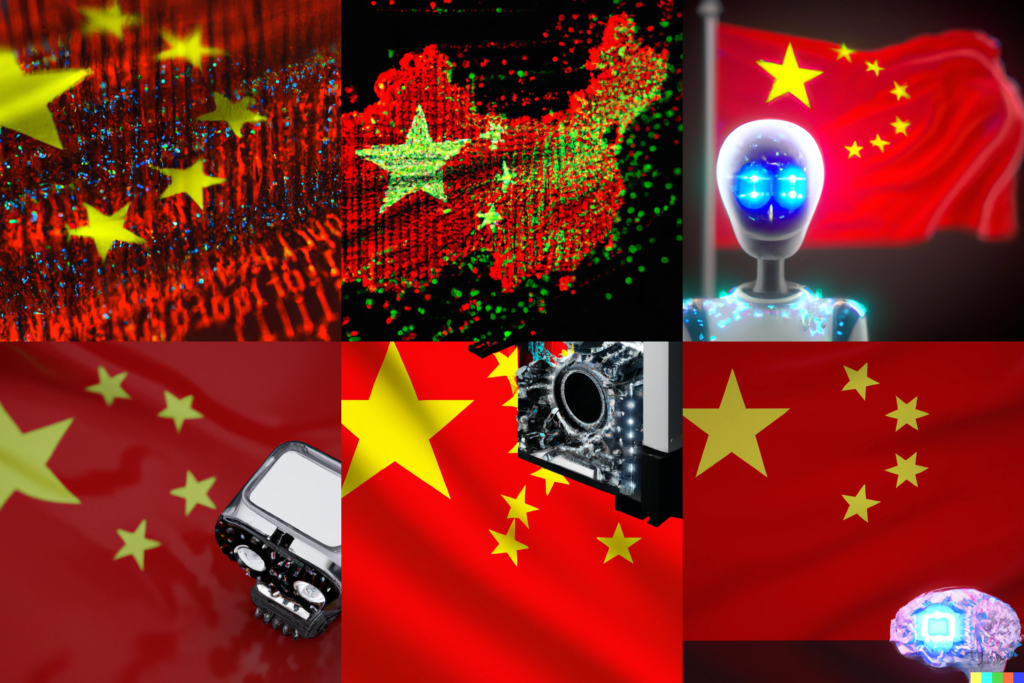The global landscape of Artificial Intelligence (AI) is set for a significant event this fall. The U.K. government, under the leadership of Prime Minister Rishi Sunak, is gearing up to host the pioneering AI Safety Summit. Sunak’s vision, announced during his U.S. visit in June, is to spearhead an inclusive dialogue encompassing government officials, tech moguls, and esteemed academics. The primary focus? Addressing the pressing concerns surrounding generative AI platforms, like ChatGPT, and their potential to inadvertently promote criminal activities or biases.
However, a crucial point of contention is the prospective inclusion of China in the summit. While Downing Street and Sunak highlight the importance of a global platform akin to the United Nations’ COP meetings on climate change, Japan has voiced its reservations.
Why the contention? Let’s delve into the intricate dynamics:
The Global AI Power Play
China is an undeniable force in the AI arena. According to the Tortoise Media Global AI Index, the nation stands second only to the U.S., factoring in research, development, government policies, talent pool, and infrastructure. In fact, their position in the AI space can be likened to their role in climate change discussions—as the world’s leading greenhouse gas emitter, China’s participation in climate conferences is vital.
Sunak’s lenient stance towards China, in comparison to his predecessors, has led to speculation. His advocacy for China’s inclusion might not just be about recognizing their AI prowess, but also a strategic move to position the U.K. at the forefront of a comprehensive international dialogue.
The Japanese Perspective
Japan, on the other hand, remains skeptical. Their government has communicated to the U.K. a distinct reluctance to back China’s invitation. Their counterproposal? A dual-tiered approach: an AI summit exclusive to the Group of Seven leaders, and another expansive one inclusive of G7 nations, China, and emerging countries.
The underlying apprehension is rooted in the potential misuse of AI by governments, suppressing freedoms and violating human rights. Recognizing this, entities like the Organisation for Economic Co-operation and Development have formulated guidelines for AI’s ethical deployment.
Moreover, the G7’s recent initiative, the Hiroshima AI Process, is set to conclude its assessment of generative AI by year-end. Japan’s contention is that top-tier discussions involving China should be deferred until a G7 consensus on generative AI is reached. Yet, advocates of China’s early inclusion argue that it could amplify the impact of the discourse.
Steering the Ship
To streamline the summit’s preparations, the U.K. government has entrusted Matt Clifford, CEO of Entrepreneur First, and Jonathan Black, an erstwhile senior G7 and G20 diplomat for the U.K., with the responsibility of preliminary consultations with countries.
An Academic’s Viewpoint: Inclusion Over Exclusion
In a recent letter to the Financial Times, Huw Roberts from the University of Oxford lucidly argues against excluding China from the AI summit. He writes:
“Excluding China from this event would be a huge mistake for three reasons.”
- “The risks posed by AI systems transcend national borders. If agreement on best practice to prevent this excludes China… then people could simply use Chinese AI systems for this type of malicious purpose.”
- “Any international agreement made will receive pushback, particularly in the US, if it is perceived to provide China with advantages. Having China at the table lessens this risk.”
- “While the US and UK have largely been dragging their feet on regulating AI, China has been proactive… This regulatory experience would be invaluable for informing well-designed policy at the UK’s AI summit.”
Views from X
China must be included in the AI safety summit, says Labour MP Darren Jones https://t.co/8DGsNkHYEe
— Oscar Hornstein (@oscar_hornstein) August 21, 2023
The U.K. government is considering inviting China to the first-ever AI Safety Summit this fall, drawing opposition from the Japanese government. https://t.co/NGsJ5vQ189
— Nikkei Asia (@NikkeiAsia) August 23, 2023
India and China make up a third of humanity.
— Michael Huang ⏸️ (@michhuan) August 16, 2023
A global summit on AI safety needs both nations at the table.
Hope @matthewclifford and @JonathanBlackUK can make it happen. https://t.co/7V1gMgv2ko pic.twitter.com/ZvpnHSSRTf
As the date for the AI Safety Summit in early November nears, the decision of China’s inclusion remains pivotal. Whether a consensus emerges or divisions deepen, the summit promises to shape the future trajectory of global AI governance.
